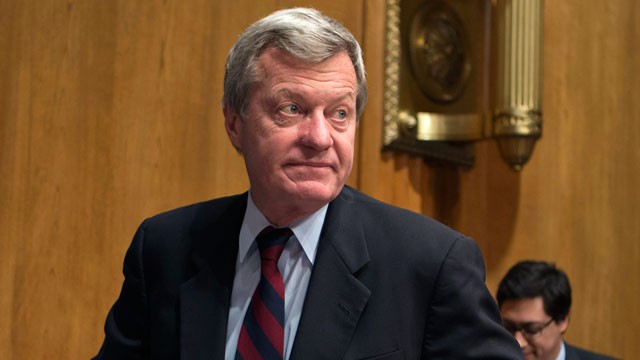Max Baucus, a good candidate for US ambassador to China
- By Tao Wenzhao
 0 Comment(s)
0 Comment(s) Print
Print E-mail chinausfocus.com, December 30, 2013
E-mail chinausfocus.com, December 30, 2013
The current US ambassador to China, Gary Locke, is set to depart from the post in January 2014, and foreign news agencies have reported that President Barack Obama will likely nominate Senator Max Baucus, also the chairman of the Senate Finance Committee, to be his next envoy to China. If this is true and no change happens, it should be a positive move for the China-US relations. There should be no doubt that his nomination will be approved by the Capitol Hill, and Baucus would be a good pick for the post of US ambassador to China.
|
|
|
Senator Max Baucus [File photo] |
Baucus is from Montana, a central-western state. Although Montana is fairly big in size, ranking fourth among all 50 states, it only has a population of less than 1 million. It is a major producer of barley, wheat and beet and is among the top few states in terms of cattle and sheep stocks, and is a typical agricultural state. The state is relatively small in population, but it has cultivated some well-known politicians. The late Mike Mansfield, who served as a senator for a long time and US ambassador to Japan, was one of such politicians. Max Baucus is also a veteran politician. He has been serving as a senator since 1978, and the chairman of the Senate Finance Committee since 2007, and before serving as the chairman, he was a senior member of the committee for six years. In nominating the veteran politician to be the next ambassador to China, it reflects the importance Obama places on advancing relationship with Beijing.
Max Baucus has been supporting to improve relations with China by using his post, activities and voting right in the Senate, in particular, supporting to develop and improve economic and trade relations with China. In the early 1990s after the end of the Cold War, some US political figures became arrogant, believing that the United States, as the only superpower, could achieve whatever it wanted, and that it would make no difference without China or without good relations with China. They showed their utmost dissatisfaction with China’s human rights record, and raised, time and again, the issue of the most-favored nation trade status for China in the Congress and wanted to terminate the MFN trade status for China. During that period, whether or not to extend the MFN trade status to China became a hot issue among the US political arena. Baucus was firm in supporting to grant the trade status to China, and believed that terminating the MFN status for China would be a wrong approach. He argued that the United States should adopt a policy that “constructively encourages China to implement reforms,” and that termination of the MFN status was an empty and useless expression of the angry sentiment. He also believed that unilateral ending of the MFN trade status would do more harm to the United States than to China, particularly, when “no other countries will follow our precedent and we will have to act alone.” In the entire 1990s, he had always been a supporter to give the MFN trade status to China.







Go to Forum >>0 Comment(s)